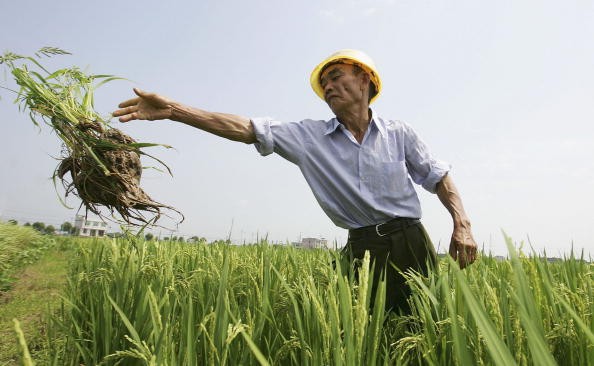Chinese scientists are urging for wider acceptance of genetically modified foods, with many saying that GMOs (genetically modified organisms) may be the key to addressing China's limited farmland and scarce water resources.
While China has a sufficient crop supply to meet the country's current needs, the changing Chinese diet, which is shifting further towards meat and animal products, adds to food security concerns, Wang Dayuan, former dean of the Department of Biological Engineering at China National Rice Research Institute, said in his remarks during a seminar in Beijing on Sunday.
"The rice and flour supply per capita is about 30.2 jin [approximately 15 kilograms] per month. China is not in a food crisis if we just consider crop supply," Wang acknowledged, adding that the rising demand for meat necessitates more reliance on animal feed, which itself is dependent on imports overseas.
"China imported some 820 million tons of soybeans in 2015, which comes out to 500 million mu [330,000 square kilometers] of soybean farmland in China. But this is impossible," Wang said, explaining that the limited availability of both farmland and water have stymied the agriculture industry in the country.
Wang argued that the worry over the safety of GMO foods is meaningless. All GMO foods that enter the Chinese market undergo an rigorous safety assessment which ensures these foods comply with similar standards as that of non-GMO products, according to the state-owned Global Times newspaper citing agriculture ministry officials.
GMO food has long been a controversial issue in China, with many opposing it for fear that it will jeopardize human health, farmland, or both. The seminar was even interrupted by an anti-GMO protester who handed out flyers and shouted anti-GMO slogans. Several protesters were also found rallying outside the venue.
"Chinese farmers are often neglected in modern society, but they communicate their needs through their choices about GMO technology and organic farming," said Wu Kongming, vice president of the Chinese Academy of Agricultural Sciences told the Global Times in an interview. Wu, who has conducted research on insect-resistant cotton for over 10 years, said in his findings that GMO cotton could cut insecticide use by at least half.
China's fertilizer use is around five times the world average, while the country's yields are below that of GMO corn, Wang said.
Jiang Tao, a senior engineer the State Key Laboratory of Molecular Development Biology under the Chinese Academy of Sciences, also noted that GMO technology is a type of molecular breeding. Jiang said that stubbornly insisting on traditional methods will only hinder scientific development and threaten public wellbeing.



























